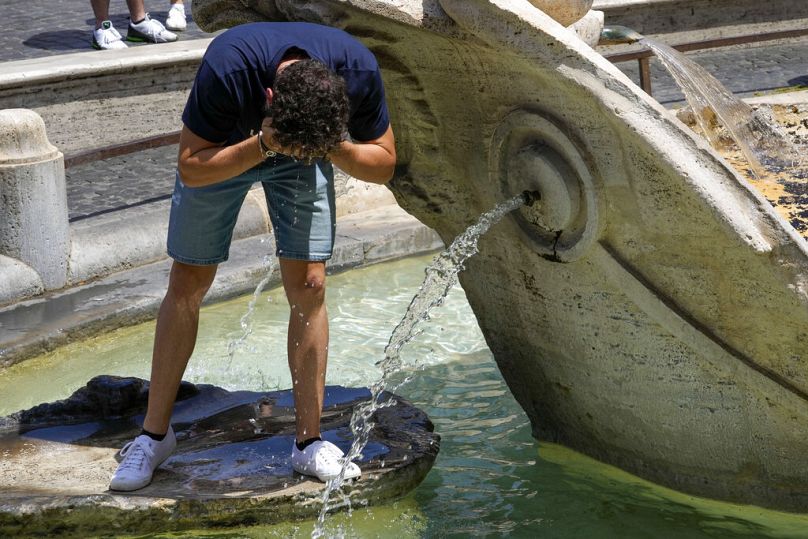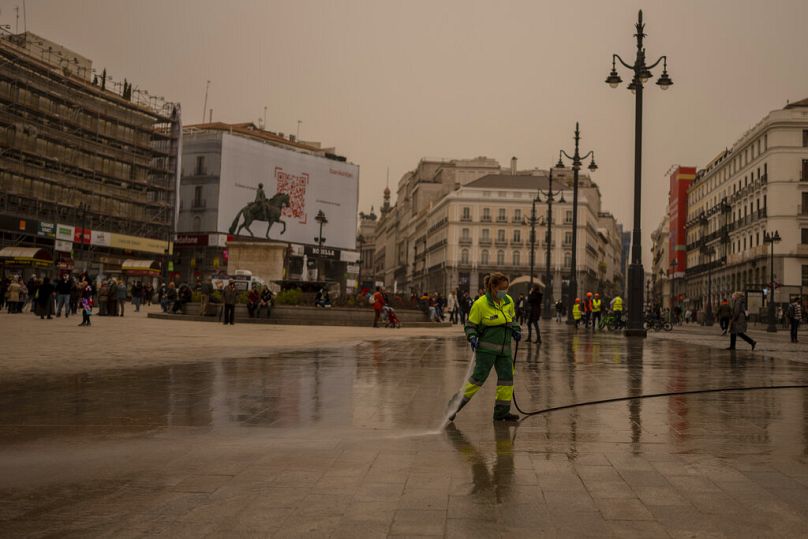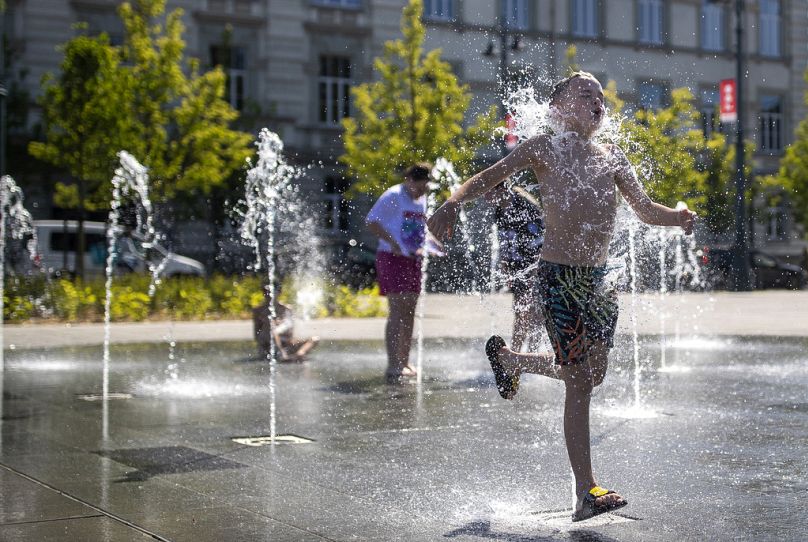It’s time to get serious: we need to label water as one of the EU’s critical raw materials, something that every citizen has a basic right to – and we need to take action to secure and defend future access to it, MEP Emma Wiesner writes.
As Europe dries out, we need fast and steady action. To secure access to water for all citizens and avoid future conflicts, the EU needs a water pact — a Blue Deal.
It is happening here, and it is happening now. The drought and water shortages in Europe are frightening signs of what a future of continued climate change will look like.
In late March this year, the European Commission raised the alarm. Large parts of southern and western Europe were facing severe droughts this summer.
The member states in these areas were told to save and ration water.
Words, but no action. That can’t be the case anymore.
Access to fresh water will soon be one of the EU’s biggest environmental challenges.
Decreasing precipitation and increasing temperatures already result in less soil moisture, lower water levels in lakes and rivers and diminishing groundwater levels.
What happens in Gotland shouldn’t stay in Gotland
Sweden, my northern home country, with cold, dark winters and many lakes and rivers, has not been spared.
This summer has begun with months of drought and farmers seeing their crops waste away in the heat.
And no, it’s not just the weather. It is a long-time change.
According to a study by the Cooperative Institute for Research in Environmental Sciences at the University of Colorado Boulder, where water levels in almost 2,000 lakes all around the world have been monitored for years, it is clear that many of our iconic lakes in Sweden are losing water. The reason is climate change.
- Spain, Italy, Portugal: Which European countries are most vulnerable to drought?
- Can desalination help combat Europe’s water crisis? Drought-struck Barcelona is banking on it
The EU Joint Research Centre also, in its drought reports, show how lack of precipitation and rising temperatures are making Sweden drier.
For years, the island of Gotland has had to set limits to water use during the warmer months of the year.
But this year, the islanders didn’t need to do this until late June. The reason is that they acted.
Efficient use, combined with new waterworks and desalination of seawater, have shown good results.
We should get serious about this
Water shortage is a part of everyday life for the people of Gotland, as well as for many other citizens of the EU.
It’s time to get serious. We need to label water as one of the EU’s critical raw materials, something that every citizen has a basic right to — and we need to take action to secure and defend future access to it.
There are already emerging conflicts in Spain and France, where access to water puts citizens against each other.
If the EU does not make the water crisis a priority in the coming years, there will no doubt be more conflicts within and even between countries.

Growing temperatures increase the need for farmers to irrigate their farmland, but increased irrigation risks lowering groundwater levels and creating side effects on biodiversity.
On top of that, tourists and expats who don’t respect water-saving measures anger the citizens of draught-stricken areas.
If the EU does not make the water crisis a priority in the coming years, there will no doubt be more conflicts within and even between countries.
This is why we need a Blue Deal
To avoid this, the European Commission must immediately begin work on a European Water Pact. A Blue Deal.
A set of legislations to secure access to water for everyone in the union.
For people, for industries, for agriculture. We must make sure we have the infrastructure for precision irrigation, desalination, and replacing the leaking water networks all over Europe.
We need to create a circular water flow where we save and reuse much more water than we do today.
- Multinational group Danone blamed for drying up water tables in Volvic, France
- Groundbreaking trial seeks to clean our waters of medical residue
In my opinion, the Blue Deal should entail national plans for the reuse and saving of water for all member states. We need to work strategically and in a structured manner, in cooperation with experts and stakeholders to guarantee access.
We should also reuse spill water and treated sewage water. Too much water from wastewater treatment plants ends up in rivers and, finally, in oceans.

There is great potential in using this water as process water in industries and in heating plants. If treated properly it can also be used for irrigation.
There should be further investment support for irrigation in agriculture. Funding is needed as soon as possible for irrigation investments for farmers, already suffering from lack of water, but also as an integrated part of the next CAP.
More should be done about research and development for desalination. Desalination is expensive and energy-intensive, rendering it an inefficient solution for now.
We need to develop new techniques to make it affordable and more climate-friendly. We should invest in pioneering desalination plants in the most drought-stricken areas.
If we don’t become more ambitious, the crisis will be here to stay
We also need new investment in water networks. A quarter of treated drinking water leaks from European water networks.
We need to modernise and replace old networks. Politicians have for way too long been pushing costs ahead of themselves; we need to face up to reality and do the necessary investments.
We must continue to make EU climate policy more ambitious. Otherwise, the crisis is here to stay.

Rewetting drained wetlands is an effective way of increasing the amount of groundwater and the surrounding soil moisture.
This can, however, have negative effects on surrounding farmlands and economic activity, which means that rewetting must be done in close cooperation with landowners and with reasonable compensation.
On top of all that, we desperately need increased climate ambitions.
Climate change and rising temperatures are the reason for the water crisis.
Therefore, we must continue to make EU climate policy more ambitious. Otherwise, the crisis is here to stay.
Emma Wiesner (Renew Europe) is a Member of the European Parliament (MEP).









